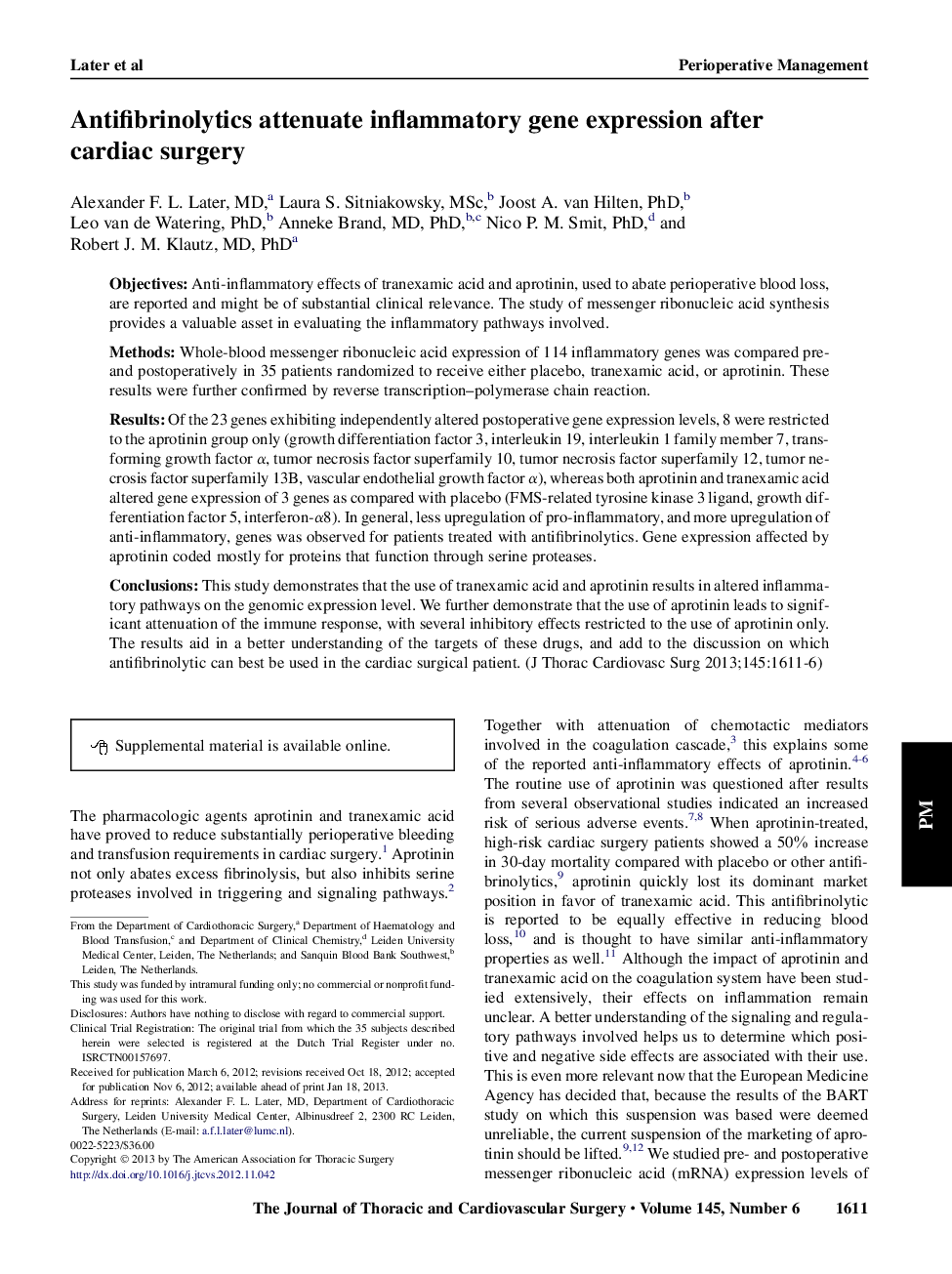| Article ID | Journal | Published Year | Pages | File Type |
|---|---|---|---|---|
| 2981214 | The Journal of Thoracic and Cardiovascular Surgery | 2013 | 10 Pages |
Abstract
This study demonstrates that the use of tranexamic acid and aprotinin results in altered inflammatory pathways on the genomic expression level. We further demonstrate that the use of aprotinin leads to significant attenuation of the immune response, with several inhibitory effects restricted to the use of aprotinin only. The results aid in a better understanding of the targets of these drugs, and add to the discussion on which antifibrinolytic can best be used in the cardiac surgical patient.
Keywords
GDFTNFTNFSF41.1TGFRT-PCRCPBmRNAMOFDNAdeoxyribonucleic acidRNAribonucleic acidinterferonIFNinterleukincardiopulmonary bypassGene expressiontransforming growth factormessenger ribonucleic acidMultiorgan failureGrowth differentiation factortumor necrosis factorTumor necrosis factor superfamilyreverse transcription–polymerase chain reactionpolymerase chain reactionPCR
Related Topics
Health Sciences
Medicine and Dentistry
Cardiology and Cardiovascular Medicine
Authors
Alexander F.L. MD, Laura S. MSc, Joost A. PhD, Leo van de PhD, Anneke MD, PhD, Nico P.M. PhD, Robert J.M. MD, PhD,
